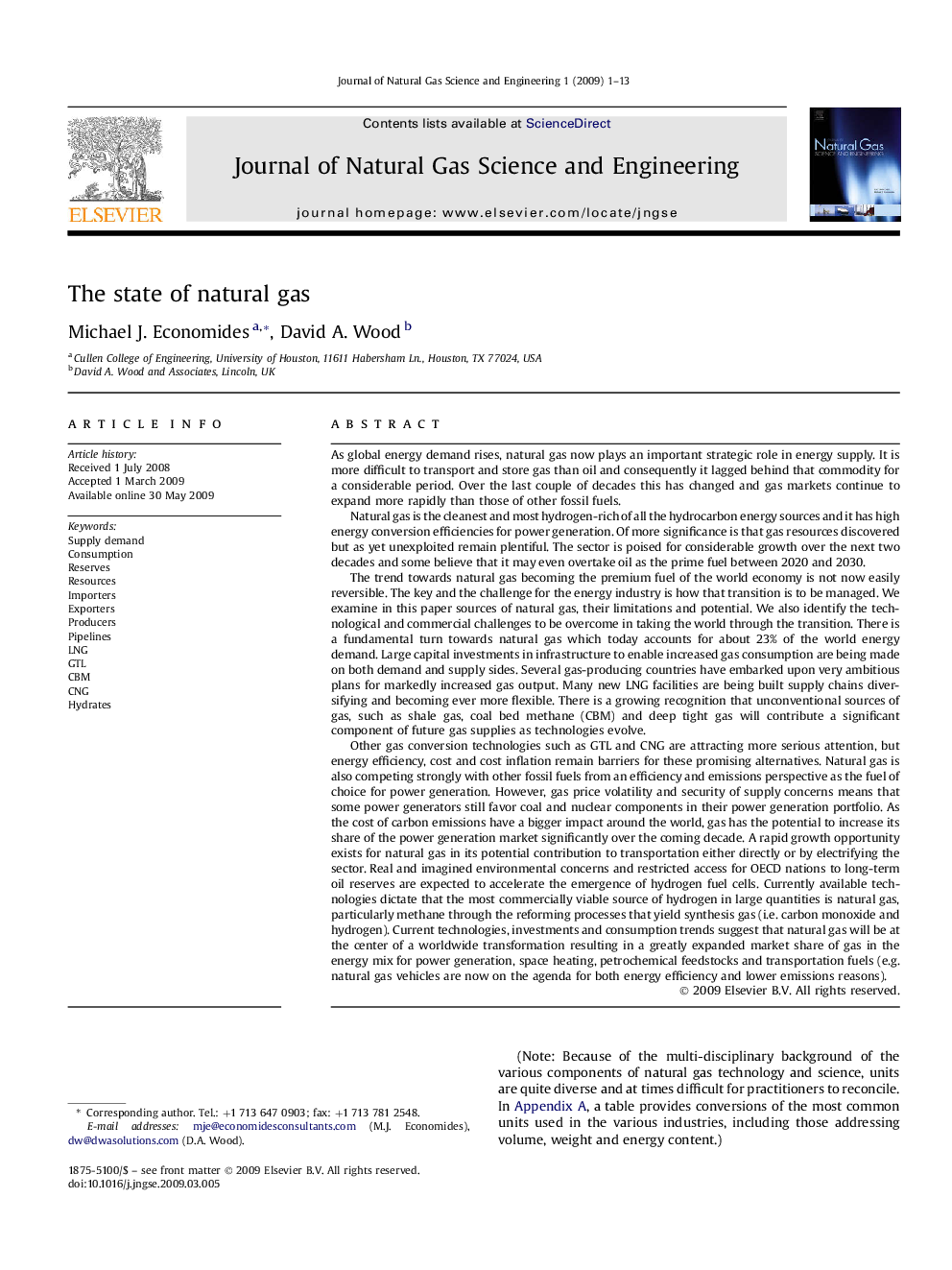| Article ID | Journal | Published Year | Pages | File Type |
|---|---|---|---|---|
| 1758335 | Journal of Natural Gas Science and Engineering | 2009 | 13 Pages |
Abstract
Other gas conversion technologies such as GTL and CNG are attracting more serious attention, but energy efficiency, cost and cost inflation remain barriers for these promising alternatives. Natural gas is also competing strongly with other fossil fuels from an efficiency and emissions perspective as the fuel of choice for power generation. However, gas price volatility and security of supply concerns means that some power generators still favor coal and nuclear components in their power generation portfolio. As the cost of carbon emissions have a bigger impact around the world, gas has the potential to increase its share of the power generation market significantly over the coming decade. A rapid growth opportunity exists for natural gas in its potential contribution to transportation either directly or by electrifying the sector. Real and imagined environmental concerns and restricted access for OECD nations to long-term oil reserves are expected to accelerate the emergence of hydrogen fuel cells. Currently available technologies dictate that the most commercially viable source of hydrogen in large quantities is natural gas, particularly methane through the reforming processes that yield synthesis gas (i.e. carbon monoxide and hydrogen). Current technologies, investments and consumption trends suggest that natural gas will be at the center of a worldwide transformation resulting in a greatly expanded market share of gas in the energy mix for power generation, space heating, petrochemical feedstocks and transportation fuels (e.g. natural gas vehicles are now on the agenda for both energy efficiency and lower emissions reasons).
Related Topics
Physical Sciences and Engineering
Earth and Planetary Sciences
Earth and Planetary Sciences (General)
Authors
Michael J. Economides, David A. Wood,
